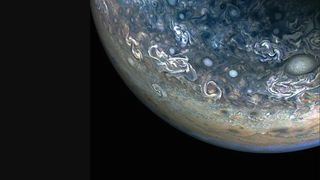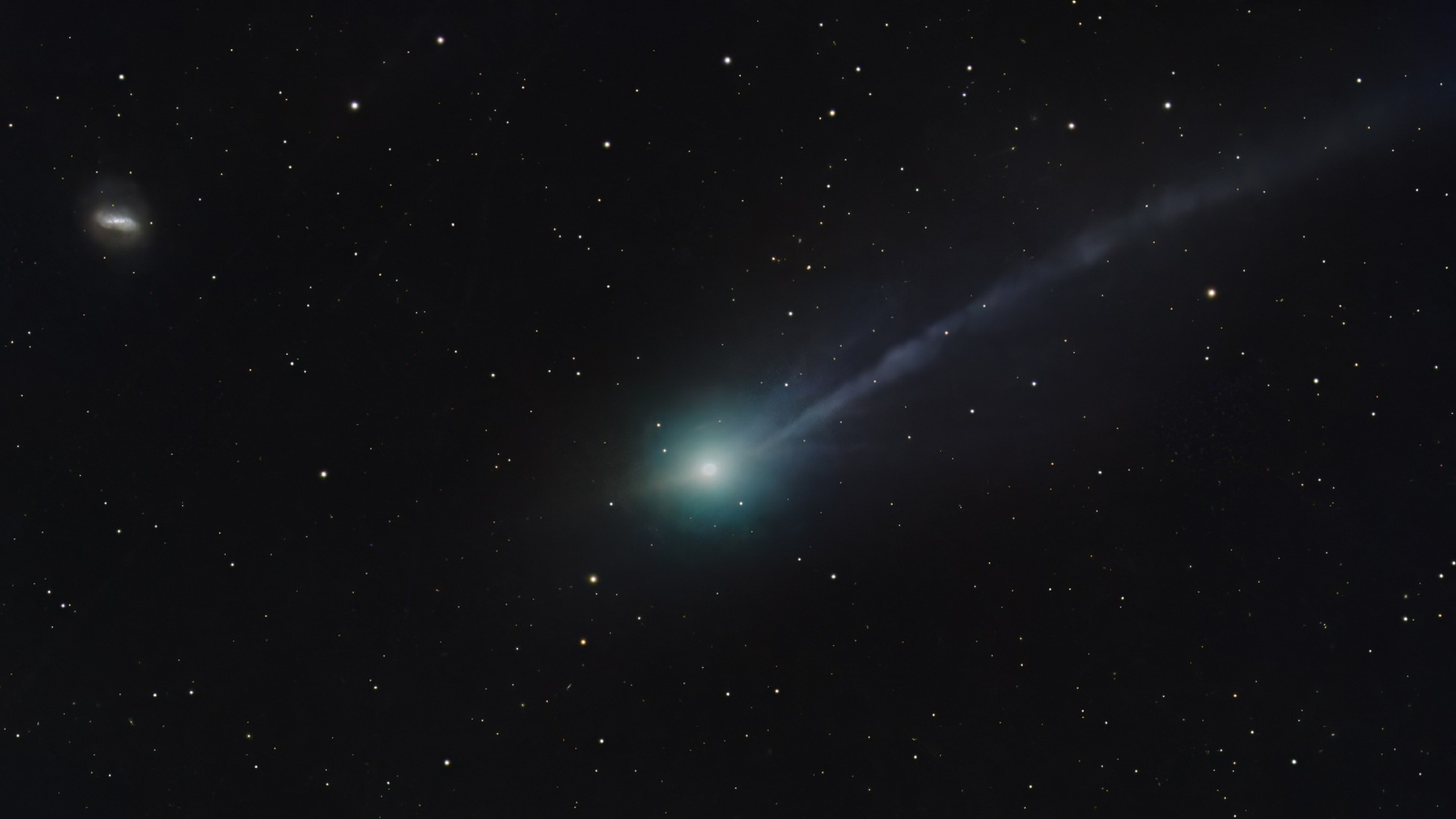Jupiter news, features and articles
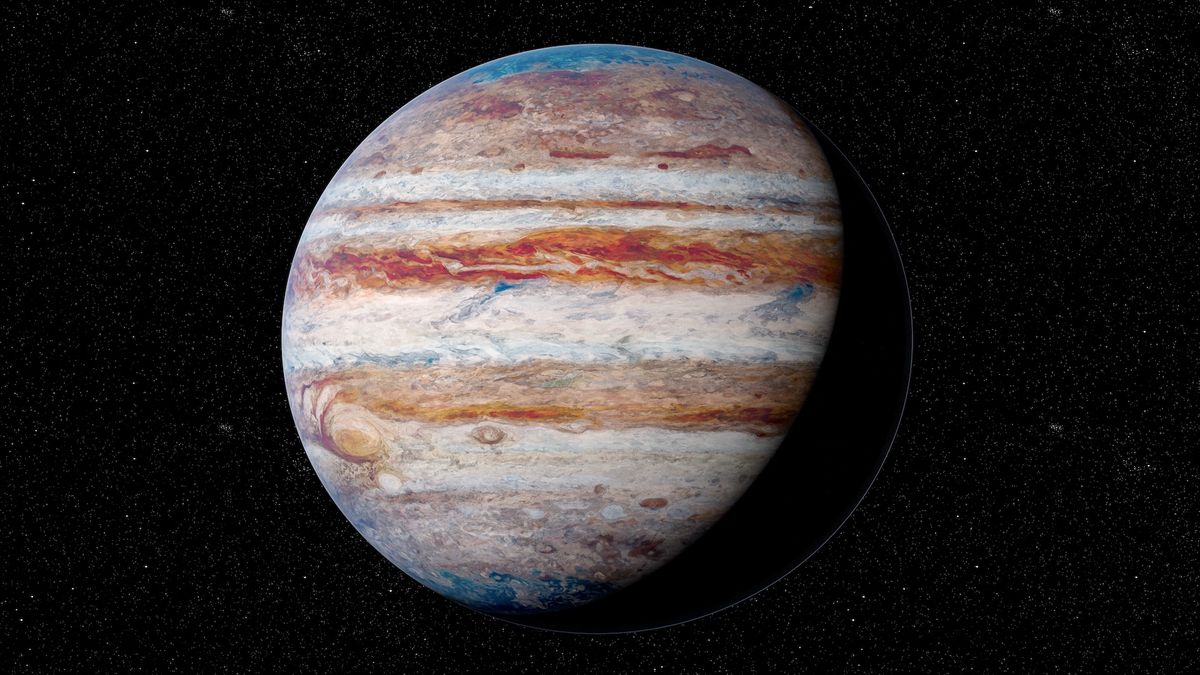
Jupiter is so large that it's known as the king of planets. At Live Science, we bask in its gassy glory by publishing facts and findings about the giant, including coverage of how Jupiter's unearthly beauty was revealed in a gorgeous true-color image, how scientists found remains of cannibalized baby planets in Jupiter's cloud-covered belly and how the mystery of Jupiter's powerful X-ray auroras was finally solved. So, if you want to learn more about our solar system's largest planet, check out the latest Jupiter news, features and articles by our expert writers and editors.
Discover more about Jupiter
—Jupiter: Facts about the biggest planet in our solar system
Latest about Jupiter
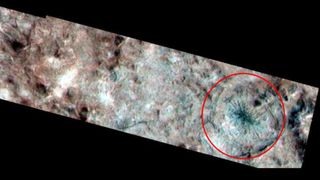
Spiders on Jupiter? Scientists uncover secret origins of arachnid-like 'demon' lurking on gas giant's moon.
By Harry Baker published
A new study reveals the likely origin of a mysterious spider-like pattern first spotted on Jupiter's moon Europa in 1998. The finding could have implications for a NASA spacecraft en route to the frozen world.
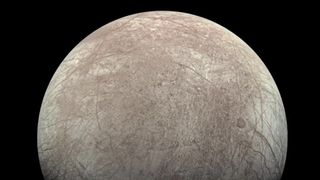
James Webb telescope spots weird changes on Jupiter's icy moon Europa
By Carolyn Collins Petersen published
The ice on the surface of Jupiter's massive moon Europa is constantly changing, hinting at the presence of a subsurface ocean, new James Webb telescope observations reveal.
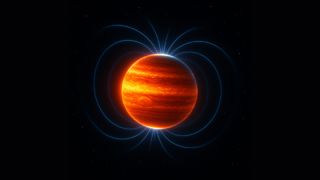
Jupiter is shrinking and used to be twice as big, mind-boggling study reveals
By Skyler Ware published
Astronomers have calculated that the gas giant Jupiter used to be twice as big as it is now, based on the odd orbits of two of its many moons.
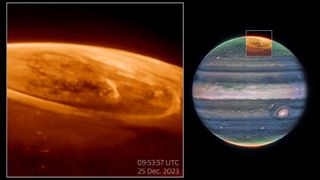
James Webb telescope reveals 'impossible' auroras on Jupiter
By Skyler Ware published
Scientists looked at Jupiter's massive auroras using the James Webb and Hubble Space Telescopes — and found a mystery they can't fully explain.
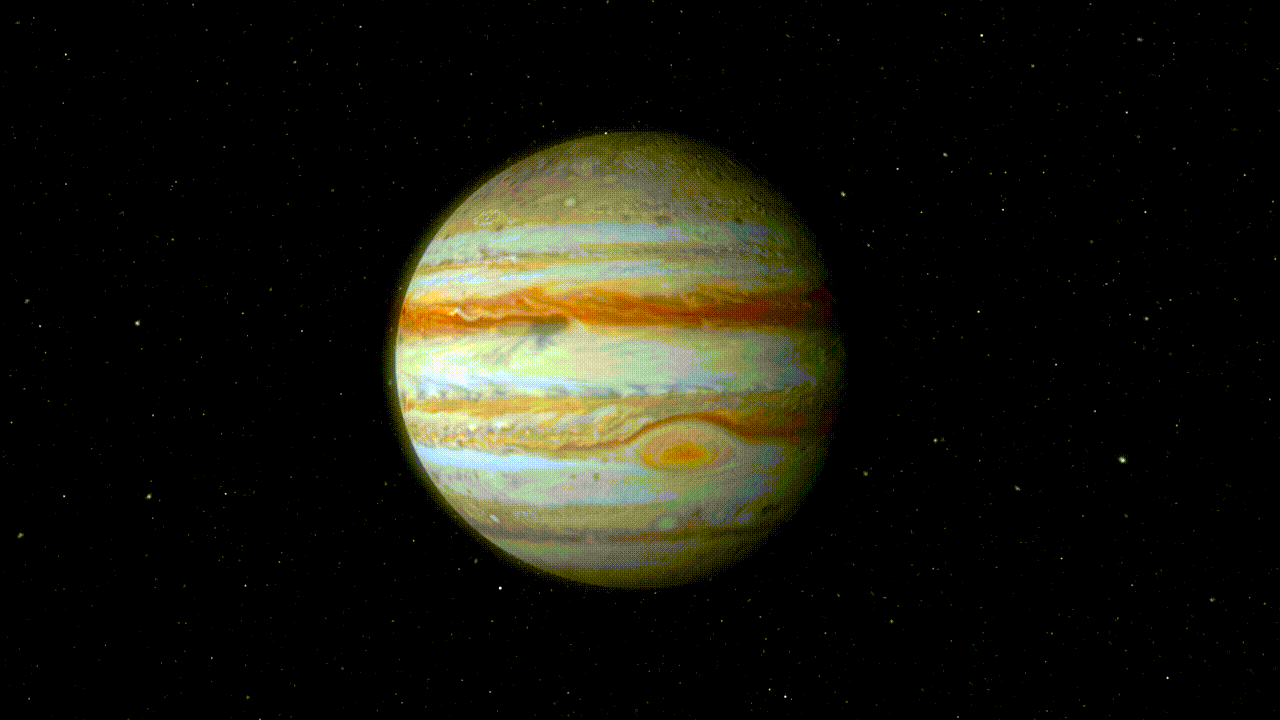
Jupiter: Facts about the biggest planet in our solar system
By Adam Mann last updated
Discover interesting facts about Jupiter, its many moons, and whether the gas giant and its moons could host extraterrestrial life
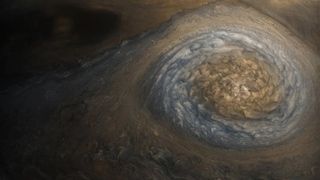
'I won't be surprised if this is happening throughout the universe': Mushball storms on Jupiter offer clues to atmospheres of distant planets
By Sharmila Kuthunur published
Large hailstones made of ammonia may explain why the gas is missing from large pockets of Jupiter's atmosphere.
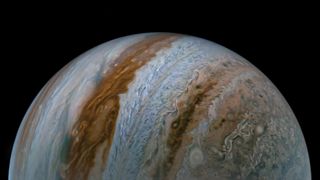
Powerful solar winds squish Jupiter's magnetic field 'like a giant squash ball'
By Victoria Corless published
A massive solar windstorm in 2017 compressed Jupiter's magnetosphere "like a giant squash ball," a new study reports.
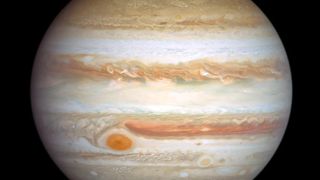
Jupiter's Great Red Spot is being squeezed, Hubble Telescope finds — and nobody knows why
By Keith Cooper published
The Hubble Space Telescope has seen Jupiter's Great Red Spot oscillating in width as it drifts around the planet. Could this be related to its overall shrinking?
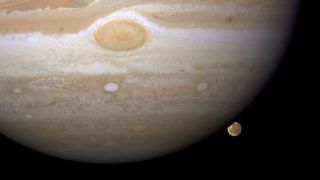
Asteroid 10 times bigger than the dinosaur-killing space rock smashed Jupiter's largest moon off its axis
By Harry Baker published
New simulations show that Jupiter's massive moon Ganymede was knocked off its axis when it was struck by a roughly 90-mile-wide asteroid around 4 billion years ago. The colossal collision was likely one of the biggest asteroid impacts the solar system has ever seen.
Get the world’s most fascinating discoveries delivered straight to your inbox.


